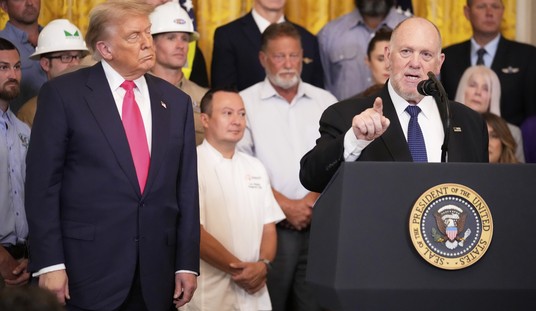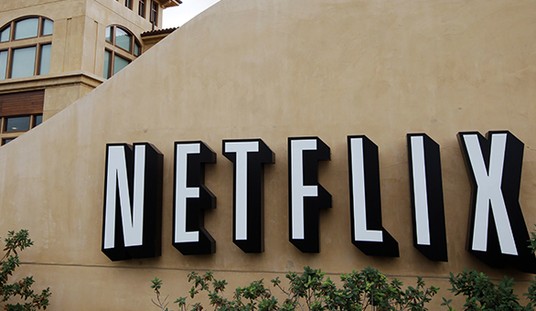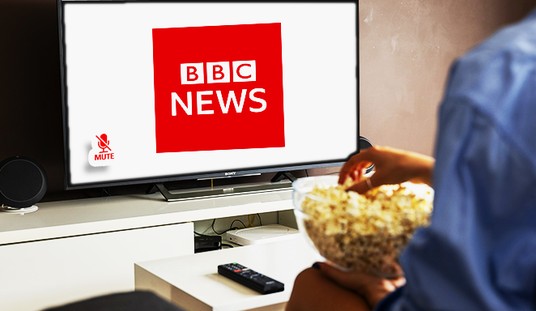
The news cycle recently has been nonstop talk about Trump’s “racist” tweets and the fallout that ensued. A lot of arguing has been going on about what exactly makes them racist, with many of the usual subjects complaining that the Right is defending a “white supremacist” and even many on the Right denouncing the tweet storm as unacceptable.
One NPR opinion writer raised a few hackles when he suggested that those journalists reporting on Trump should refrain from using descriptors like “racist”.
Keith Woods is Vice President of Newsroom Training and Diversity at NPR. After the outlet made a corporate decision to use the term “racist” when describing Trump’s tweets, Woods felt the mandate violated journalistic practice and penned an op ed explaining why he thinks journalists should refrain from using the term.
I understand the moral outrage behind wanting to slap this particular label on this particular president and his many incendiary utterances, but I disagree. Journalism may not have come honorably to the conclusion that dispassionate distance is a virtue. But that’s the fragile line that separates the profession from the rancid, institution-debasing cesspool that is today’s politics.
It is precisely because journalism is given to warm-spit phrases like “racially insensitive” and “racially charged” that we should not be in the business of moral labeling in the first place. Who decides where the line is that the president crossed? The headline writer working today who thinks it’s “insensitive” or the one tomorrow who thinks it’s “racist?” Were we to use my moral standards, the line for calling people and words racist in this country would have been crossed decades ago. But that’s not what journalists do. We report and interview and attribute.
Woods goes on to say that while he’s not a journalist by trade, he respects the legacy of the profession and feels that objectivity requires reporters to drop editorializing labels, no matter how tempting.
I am not a journalism purist. I came into the profession 40 years ago to tear down the spurious notion of objectivity used to protect a legacy of sexism, xenophobia and white supremacy. The better ideals of truth telling, accountability, fairness, etc. are what give journalism its power, while the notion of “objectivity” has been used to obscure and excuse the insidious biases we do battle with today.
Woods makes the argument that journalistic integrity is greatly damaged by “obscuring” objectivity. Of course, people on the right have been saying that forever but it is especially notable to see such a point of view from a liberal outlet. The fact that one would feel compelled to describe NPR as a liberal outlet in the first place (and many do) perhaps only proves Woods’ point.
In the end, Woods implores reporters to report, and let the reader do the editorializing…for better or for worse.
It’s already nearly impossible to separate actual journalism from the argumentative noise on the cable networks that dominate so much of public perception. There are already too many journalists dancing day and night on the line that once separated fact and judgment. When that line is finally obliterated and we sink into the cesspool beckoning us to its depths, this historically flawed, imperfect tool for revealing and routing racism will look and sound indistinguishable from the noise and become just as irrelevant.
[The President’s] words mirror those of avowed racists and xenophobes that date back to the birth of this country. Was that moral judgment, my last sentence? I would argue no. I’d call it context, and it doesn’t require my opinion, just a basic understanding of history. That’s an alternative to labels: Report. Quote people. Cite sources. Add context. Leave the moral labeling to the people affected; to the opinion writers, the editorial writers, the preachers and philosophers; and to the public we serve.
We just have to do journalism.
I heartily agree with Woods. Given the death spiral the mainstream media has thrown itself into over the last decade (and the resulting 2016 electoral response) it would seem like a good business decision to leave the opining to the opiners and just report the facts.
I would also add that if we are having so much trouble agreeing on what constitutes “racist” in this case (and we are) maybe that in itself is proof that it wasn’t really racist. Either that or we’ve overused the term so much no one even knows what it really describes anymore.
Either argument works here, and that is basically the argument Woods is making – lay off the drama, report the facts, and let the consumer do the labeling.














Join the conversation as a VIP Member